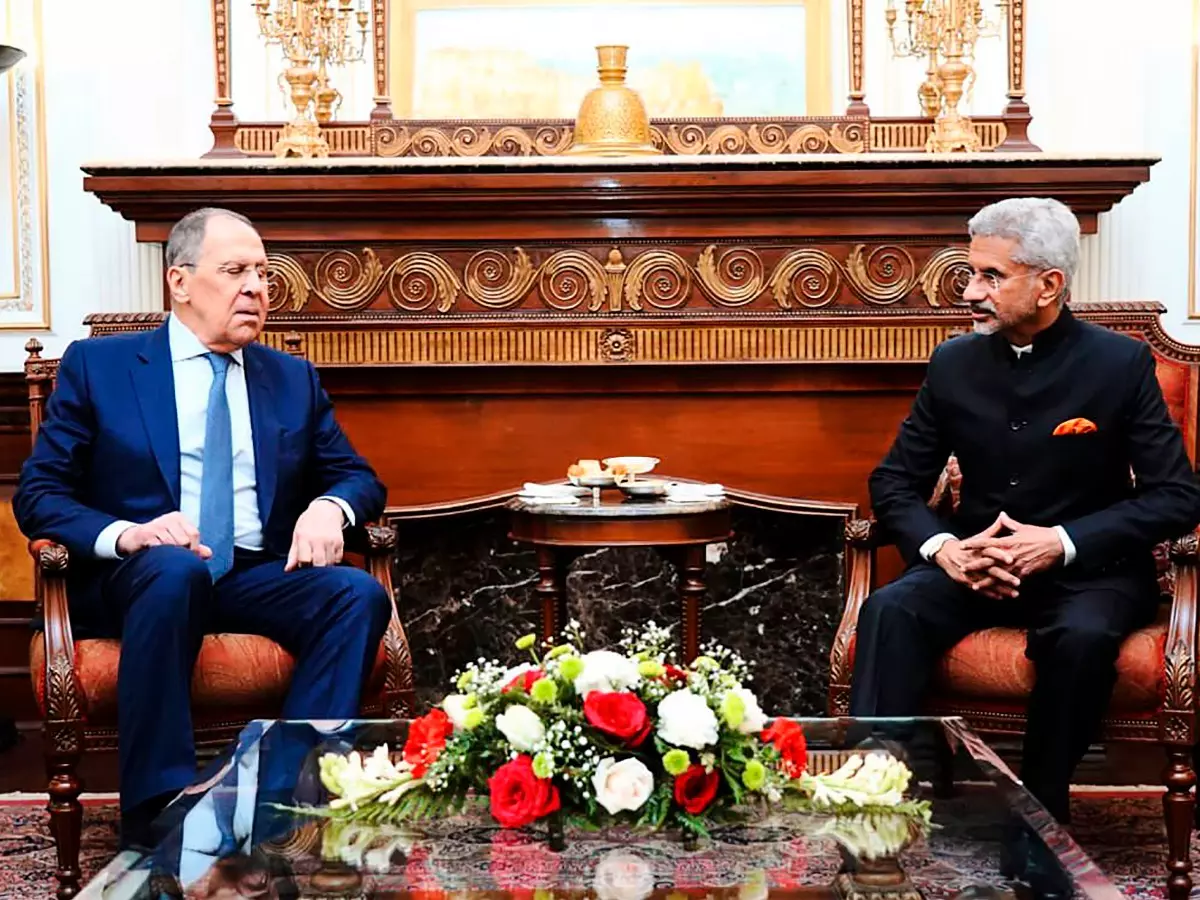Explained: How India Ignored The West To Continue Buying Oil From Russia
As several economic sanctions were imposed on Russia, the Indian government decided to continue its trade with the country and import cheaper oil to meet the country¡¯s needs.

As several economic sanctions were imposed on Russia, the Indian government decided to continue its trade with the country and import cheaper oil to meet the country¡¯s needs.
The sharp rise in oil prices due to war will result in a current account deficit and push inflation higher. Thus, India took the decision to import oil from Russia.
World leaders criticise India
British Foreign Secretary Truss said that the UK is ending its dependence on Russian oil by the end of the year. However, India is a sovereign country and she is not going to tell India what to do.
 AP
AP
She Said, ¡°What I have said is as a member of the UK government that has signed up to the Budapest Memorandum, I feel a strong responsibility on behalf of the United Kingdom to take all the action we can, to support the people of Ukraine but that is not the same as going around telling other countries what to do¡±.
The United States said India should not increase its oil imports from Russia and it leads them to a "great risk".
However, the Budapest memorandum proved to be a piece of paper because everything happening in Ukraine is against the memorandum.
Strategic arms reduction treaty
In 1991, US President George H.W. Bush and USSR President Mikhail Gorbachev signed a bilateral treaty to limit the number of intercontinental ballistic missiles (ICBM) and nuclear warheads that the countries possess. Ukraine was still the part of USSR when the treaty was signed.
Soon after the treaty was signed, the USSR disintegrated and again the treaties were signed under the Lisbon Protocol.
What is Lisbon Protocol?
The Lisbon Protocol was signed by Ukraine, Kazakhstan, and Belarus as the ¡°successor states¡± of the USSR in 1992.
 Foreign Policy
Foreign Policy
The successor states were obligated to join the Nuclear NPT after signing the treaty and nuclear weapons were to remain under the control of a ¡°single unified authority¡± until then.
What is the Budapest Memorandum?
In 1994, the Budapest memorandum was signed between Ukraine and nuclear powers the Russian Federation, the United Kingdom and the United States at the OSCE conference in Budapest, Hungary.
The nuclear power agreed to respect the ¡°independence and sovereignty and existing borders of Ukraine¡± after Ukraine nodded to give up its nuclear arsenals.
The Memorandum provides political and security assurances by its signatory states that the territorial integrity and political independence of Ukraine will be maintained and economic coercion against Ukraine to their own advantage will also be taken care of.
Hence, Ukraine gave up their nuclear weapons and transferred its last nuclear warhead to Russia in 1996.
In 2014, Russia annexed Crimea breaking its commitments under the Budapest Memorandum and now full-fledged invasion into Ukraine.
What is the non-proliferation treaty?
In 1970, the Non-Proliferation treaty (NPT) came into effect involving 187 nations. The treaty bans non-nuclear countries to acquire them and also bans nuclear countries to help them in acquiring nuclear weapons. They work towards total disarmament.
 The Coversation
The Coversation
Simply put, the NPT is a legally-binding agreement that prohibits the development of nuclear weapons and only considers China, France, Russia, the UK and the US as the legitimate holder of the nuclear arsenal.
The treaty is not signed by India, Pakistan, Israel and North Korea, hence are not members of the NPT.
What is the stand of India?
Retaliating with the allegations, the foreign Minister of India, Dr S Jaishankar underlined the fact that in March, Europe had bought 15% more oil and gas from Russia than it did the month before. He said that Europe bought more oil from Russia than before the war and all sanctions imposed ¡°looks like a campaign¡±.
¡°If you look at the major buyers of oil and gas from Russia, I think you¡¯ll find most of them are in Europe. We ourselves get the bulk of our energy supplies from the Middle East, about 7.5-8 pc of our oil from the US in the past, maybe less than percent from Russia,¡± he added.
On questions of morality, Dr Jaishankar said that it depends on the proximity of how strongly a particular country or society relates to what is happening. And again, the example I would use is Afghanistan¡had a very strong impact here, certainly in India. I probably would say it didn¡¯t have the same impact in Europe.¡±
For more on news and current affairs from around the world please visit Indiatimes News.
